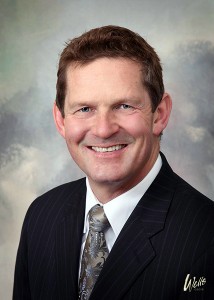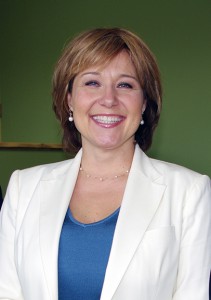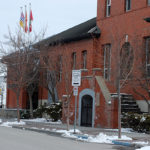Home »

Minimum wage to increase Sept. 15
The Province of B.C. today announced an increase in the minimum wage effective September 15 to $10.85, a 40-cent increase from the current $10.45, dragging it from being the lowest rate in Canada.
This increase is over and above the scheduled increases tied to inflation. The move ensures B.C. no longer has the lowest minimum wage in Canada. Additionally, there will be another 40-cent increase by September 2017, bringing the minimum wage to $11.25.
Last year, the provincial government announced a policy to index the minimum wage to British Columbia’s Consumer Price Index (CPI). Based on British Columbia’s 2015 CPI, the minimum wage this year would increase by 10 cents per hour. With British Columbia expected to lead the country in economic growth this year and next, the government has decided there is room for an adjustment to the minimum wage rate beyond B.C.’s CPI, a provincial government press release stated.
The Cranbrook Chamber of Commerce this afternoon stated it understands the need for British Columbia to be competitive in an unprecedented time of human capital portability.

“We are not just competing with the balance of Canada but literally the world in attracting and retaining workers,” said Chamber Executive Director (ED) David D. Hull.
“It is important to note that very few people in B.C. are actually making minimum wage,” said Hull. “According to government statistics less than 100,000 people in B.C. are making minimum wage and very, very few of them are living off that wage or are the head of the household.”
A concern for business is the ratcheting up of wage levels above minimum wage, Hull pointed out.
“The minimum wage is the floor and a rise at the minimum wage pushes up through at least a number of pay grade levels, increasing these wage stages higher,” said Hull. “This is a concern for small business which comprise 98% of the B.C. businesses.”
In an effort to mitigate the effects of the minimum wage increase the government announced a $2.88 million investment in new training programs to help with labour shortages in the province. The programs will be help young people, small businesses and employers in the retail, hospitality, agriculture and aquaculture sectors.
The government is also reaffirming its commitment to reducing the small business tax rate by 40% by 2017-18. This would mean a small business that is incorporated with $100,000 in active business income would have its taxes go from $2,500 to $1,500, savings of $1,000 annually.
The Cranbrook Chamber of Commerce welcomes the government’s commitment to small business and the overall economic health of small business sector, it stated in a press release today.
The BC Chamber of Commerce is voicing concern about the impact that today’s announcement of two larger-than-expected minimum wage increases will have on B.C. businesses.
“There’s no denying that these two minimum wage increases will be tough for some of our 36,000 represented businesses across the province,” said Maureen Kirkbride, BC Chamber Interim CEO. “That said, we appreciate government’s efforts to offset negative impacts on business, notably by decreasing the small business tax to 1.5% in 2017.”
The BC Chamber recognizes that the B.C. government has been clear about its intention to raise B.C.’s minimum wage relative to other Canadian jurisdictions, to match B.C.’s strong recent economic performance. However, going forward, the chamber urges government to return to tying minimum wage increases to the Consumer Price Index (CPI).
“For our businesses, the bottom line is the need for certainty and predictability,” said Kirkbride. “Quite simply, we need to take the politics out of minimum wage increases.”
In 2015, the BC Chamber’s membership passed a policy arguing for the need for predictability in minimum wage increases, and calling for no minimum wage increases beyond those tied to CPI.
The first wage increase (to $10.85) will push B.C. to the second lowest in Western Canada, with only Saskatchewan and its $10.50 minimum wage lower.
It will also only be slightly ahead of all eastern provinces, except Ontario ($11.25/hr).
Premier Christy Clark said today she hopes the increases will help.

“One of the first actions I took when I became Premier was to raise the minimum wage. Raising the minimum wage twice over the next two years, coupled with some targeted supports for young people and businesses, will help everyone share in the benefits of our growing economy,” she stated.
“B.C.’s economy is expected to lead the country in economic growth this year and next. We want to strike a balance where we bring the minimum wage into line with our strong economy. That is why these two increases to the minimum wage will help those earning minimum wage while not impeding businesses’ ability to grow, innovate and hire British Columbians,” added Shirley Bond, Minister for Jobs, Tourism and Skills Training, and Minister Responsible for Labour.
Coralee Oakes, Minister of Small Business, Red Tape Reduction and Minister Responsible for the Liquor Distribution Branch said the increases will be a win for small business and workers.
“We know that small businesses are the backbone of our regional economies. The new Canada-BC Job Grant will cover all the training costs for small businesses that hire and train an unemployed person. This is a win-win situation that helps both small businesses, our tight labour market and these British Columbians,” she said.
B.C. Government Statistics on Minimum Wage Earners in BC (2015)
– In 2015, five per cent of employees in B.C. were earning minimum wage or less, significantly below the Canadian average of 7.1%.
– The 2015 rate of five per cent in B.C. was a decrease from 5.9% in 2014.
– The number of B.C. employees earning minimum wage or less was 93,700 out of 1,892,700 paid employees (i.e., excluding the self-employed). This compares to 110,400 employees in 2014 out of a total of 1,882,500 paid employees.
Of the 93,700 B.C. employees earning minimum or less in 2015:

– 53,600 (57%) were youth aged 15-24;
– 55,700 (59%) were female;
– 30,100 (32%) did not have high school graduation while 11,500 (12%) had a university degree.
– 86,800 (93%) worked in the service producing sector, including 29,900 (32%) in accommodation and food services and 27,200 (29%) in trade (including retail trade);
– 16,900 (18%) had been in their job for three months or less while 43,700 (47%) had been in their job for at least one year;
– 29,800 (32%) worked in firms with less than 20 employees. 40,600 (43%) worked in firms with more than 500 employees;
– 40,500 (43%) were full time workers;
– 21,900 (23%) were defined by the labour force survey as being a member of a couple;
– 7,400 (eight per cent) were defined as being the head of a family with spouse present;
– 12,100 (13%) lived as “unattached” (i.e., without a spouse or family member);
– 51,700 (54%) lived with their parents;
– Of the minimum wage earners living with their parents, 47% were attending school.
e-KNOW







